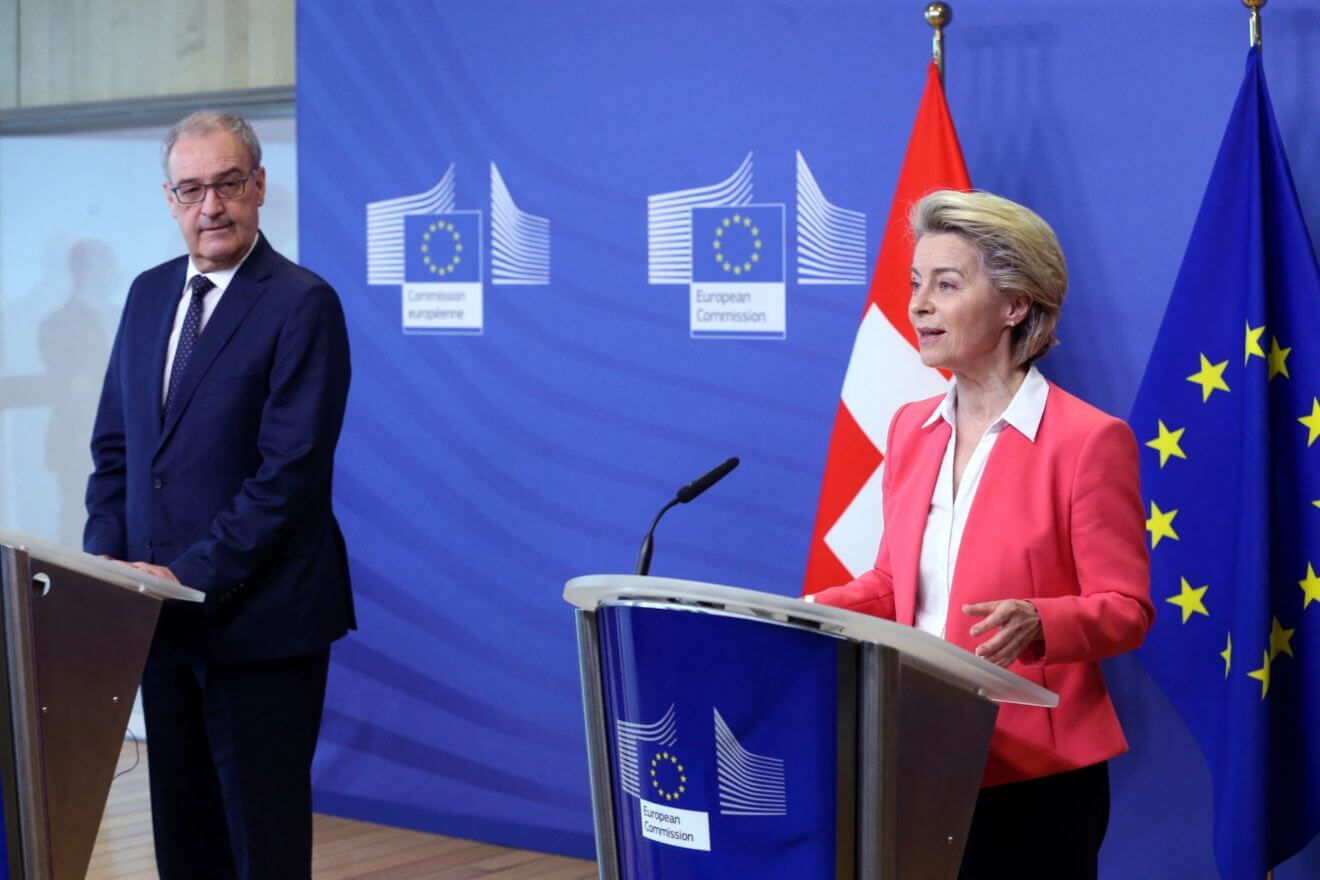On Wednesday, Switzerland announced its decision to terminate negotiations with the European Union (EU) focused on upgrading their diplomatic relations. Speaking at a press briefing, Swiss President Guy Parmelin said that the decision was taken following “domestic consultations,” as the discussions with the EU have not “led to the necessary solutions.”
The move brings an end to the seven-year-long negotiations on an institutional agreement between the two sides. Though the final draft was prepared in November 2018, Switzerland’s decision was a consequence of the repeated to-and-fro between Bern and Brussels on clarifications and amendments to the text.
The treaty, called the EU-Swiss Institutional Agreement, aimed to secure Switzerland’s fair and equal access into the European market, which the EU said would level the playing field. The two sides’ main disagreement was on three issues: salary protection, state aid rules, and the access of EU citizens to Swiss social security benefits.
During negotiations, the EU insisted on Switzerland’s adoption of the Citizens’ Rights Directive, which would allow Swiss and EU citizens the right to free movement and residence. However, the Swiss government believes that it would result in “higher social security costs” and a “paradigm shift in Switzerland’s migration policy,” as it would allow non-Swiss unemployed citizens to access social security.
Moreover, the EU also refused Switzerland’s request to abandon its call for a “dynamic alignment”, which would require Bern to adopt all relevant laws implemented by the bloc to achieve a single market. In addition, the bloc wanted all disputes arising out of the agreement to be resolved by the European Court of Justice (ECJ). This, Brussels said, was necessary to enforce a uniform regulatory system and policies.
While making the announcement on Wednesday, the Swiss Federal Council said that there continue to exist “substantial differences between Switzerland and the EU on key aspects of the agreement” and “the conditions are thus not met for the signing.” However, the Council said that the Swiss side remains committed to its “well-established cooperation” with the EU and will continue to abide by the terms of the various agreements that currently guide their relations. It said, “Even without an institutional agreement, Switzerland remains a reliable and committed partner for the EU.”
In response, the European Commission said that it deeply regretted Switzerland’s decision to abandon the negotiations, specifically in light of the progress made by the two sides in the discussions. In a statement, the body said, “Without this agreement, this modernisation of our relationship will not be possible and our bilateral agreements will inevitably age.” However, an EU official clarified that the decision had not really come as a surprise for them. Nevertheless, he said that the leaders would discuss the way forward and that entering into an institutional agreement with Switzerland is still a possibility.
The EU and Switzerland have strong cultural, political, and economic relations. While around 1.4 million citizens of the bloc reside in Switzerland, over 400,000 Swiss citizens are housed by the EU. Moreover, Switzerland is also the EU’s fourth-largest partner for trade and the EU is Switzerland’s largest trading partner. Currently, the two sides’ relations are guided by over 120 bilateral treaties, including a Free Trade Agreement from 1972. However, with Switzerland walking out of the negotiations, it is predicted that relations are likely to face some turbulence.
Switzerland Terminates Negotiations on Upgrading Relations With EU
Switzerland has terminated negotiations with the European Union on an agreement that aimed to upgrade the two sides’ partnership, as they “have not led to the necessary solutions."
May 27, 2021

European Commission President Ursula Von der Leyen and Swiss President Guy Parmelin. SOURCE: GETTY IMAGES
